The Transdisciplinary Poltiical Ecology (TPE) working group organised a day-long event titled ‘Climate, Conservation and Community: A Transdisciplinary Political Ecology Dialogue’ on May 30 at the Hunter Student Commons, University of Calagry, Alberta, Canada. TPE envisioned to create a platform and initiate a transdisciplinary dialogue on contemporary issues related to climate change, decarbonisation, environmental justice, sustainibility and ebergy transition. As a result, this event was organised as a stepping stone and a template to bring together experts, particitioners, community members, academics and policy makers under one roof to address the questions of climate change, nature conservation and the involvement of communities in planning and decision making. 57 participants registered for the event and more than 40 attended representing industry, non profits, community, think tanks and academics including students and researchers. Building on the momentum from the event, TPE is focusing on future endevours that includes publishing the proceedings from this event and presenting it at POLLEN 2026 in Barcelona, Spain.
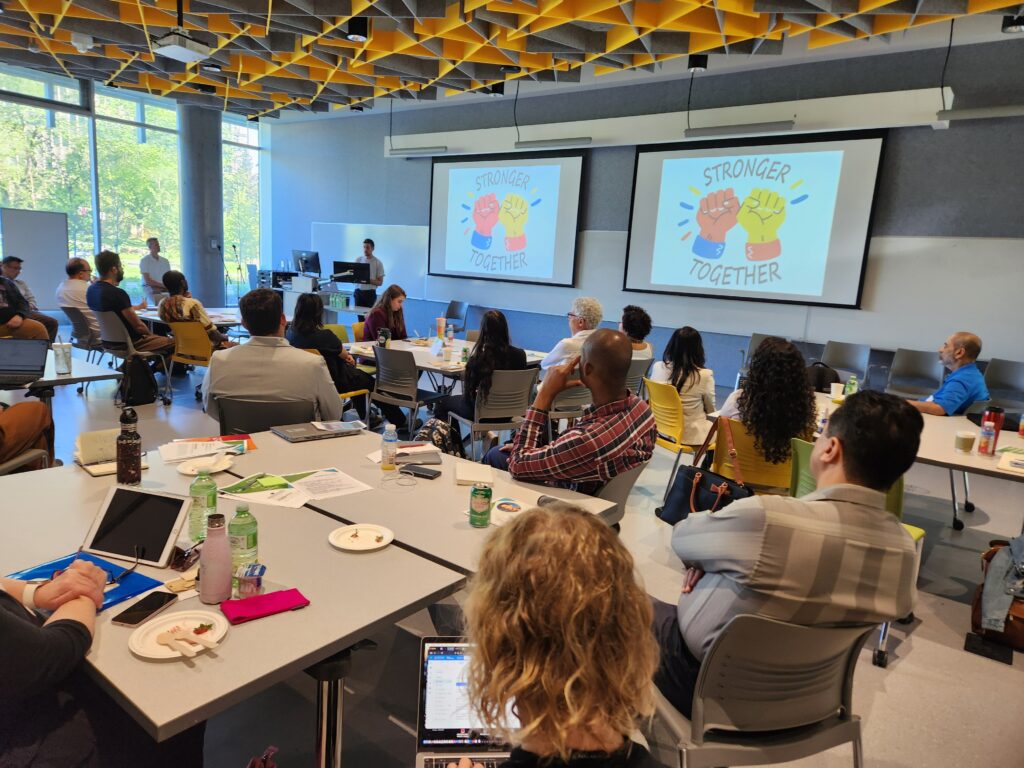
The event was opened with blessings from Elder Cheryle Chagnon-Greyeyes, a proud Nehiyaw Esquao (Cree Woman), a member of Muskeg Lake Cree Nation, Saskatchewan, Treaty Six, and Métis. Her ceremonially gifted Cree name translates to “Healing Woman Who Walks Far”, and she has resided in Calgary, Treaty 7, Alberta, since 1993. The ceremony involved a collective hymming pf a traditoinal Cree greeting song and oferred a harmonius start to the event. This was followed by the keynote address titled ‘Community Inclusion: A Fundamental Key For Climate Equity’ by Jared Blustein, Executive Director, Calgary Climate Hub. Jared, co-founder of the The Allium Restaurant and the Bodega Worker Cooperative, is involved in activism and the nonprofit sector and is passionate about the impacts of Indigenous land dispossession, socio-economic injustice, and human-driven climate change. His address set the agenda for the day and introduced the broad themes of discussion that were taken up during the rest of the day. The First half of the event was captivating, building an anticipation for what was to come next.
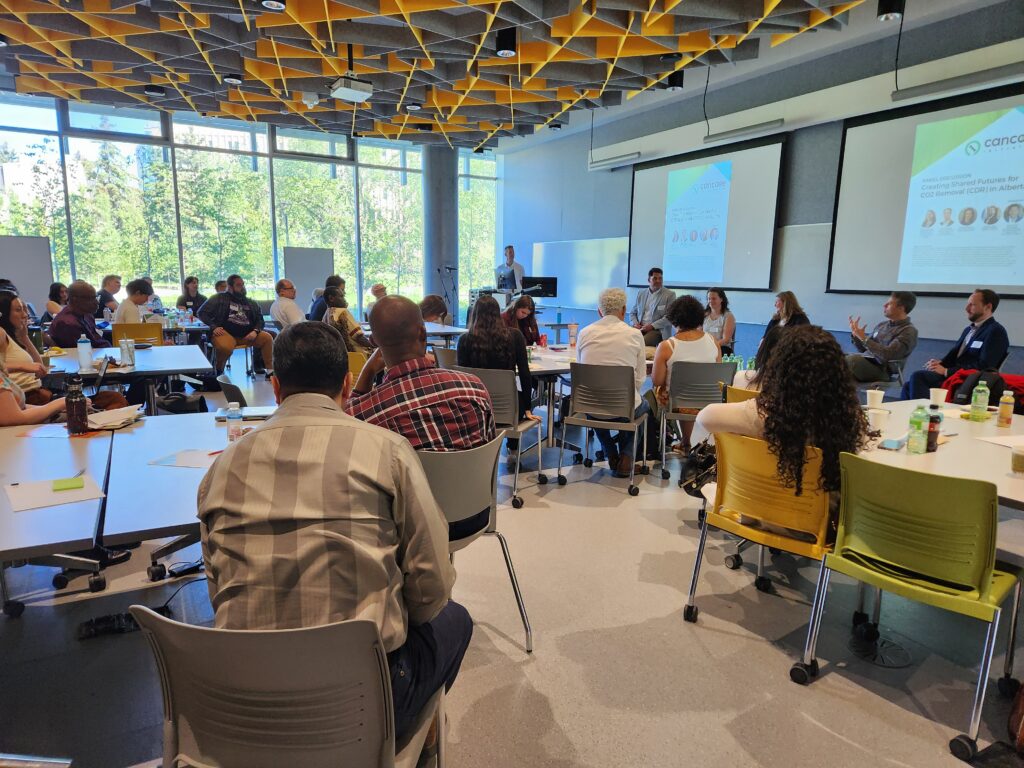
The second session involved a panel discussion titled ‘Creating Shared Futures for CO2 Removal (CDR) in Alberta’ involving the members of the University-based think-tank, CanCO2re (Cancore) Initiative. CanCO2re is an interdisciplinaryteam of researchers is assessing the role for sustainable, equitable, cost-effective and rapidlydeployable carbon dioxide removal (CDR) technologies in meeting Canada’s net-zero targets. Itidentifies and assess the cost, environmental impact and scalability of CDR technologies; ways inwhich CDR deployment will be shaped by (and shape) law and governance, stakeholder andcommunity perceptions; and trade-offs inherent in developing supportive legislation and policiesfor CDR in Canada towards a 2050 net-zero goal. The CanCO2Re initiative brings together expertsfrom a range of fields, including engineering, science, history, political science and economics. It was an engaging discussion that involved discussing the challenges and avenues for CDR technologies in Alberta, the heart of global oil and natural gas economy, and its immpact on communities. The discussion was moderated by Dr. Luis Virla Alvarado, Assistant Professor at the Schulich School of Engineering,University of Calgary, bringing in the perspective of engineering solutions to climate change while contrasting it with the challenges that lie in adopting, and even conceiving, of ‘solutions’ to climate change. The panel discussion provided a lot of food for thought that were explored in the two roundtable sessions that followed.
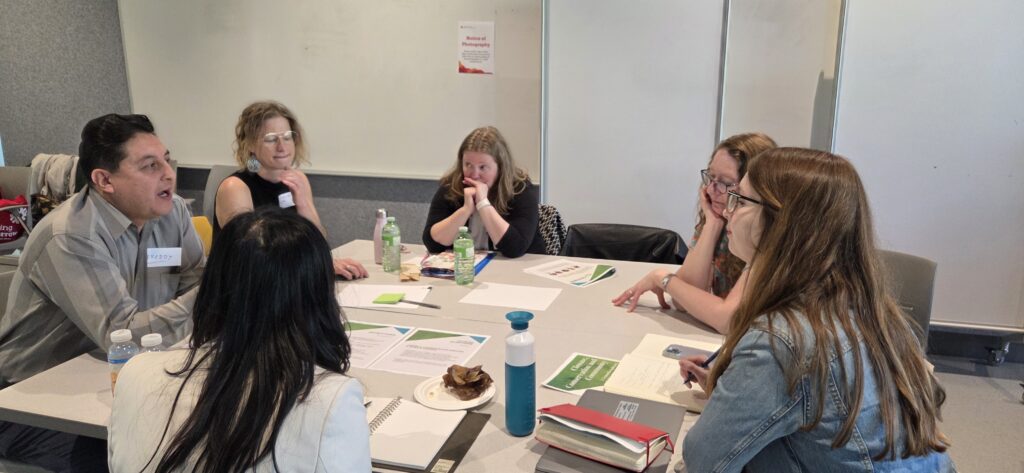

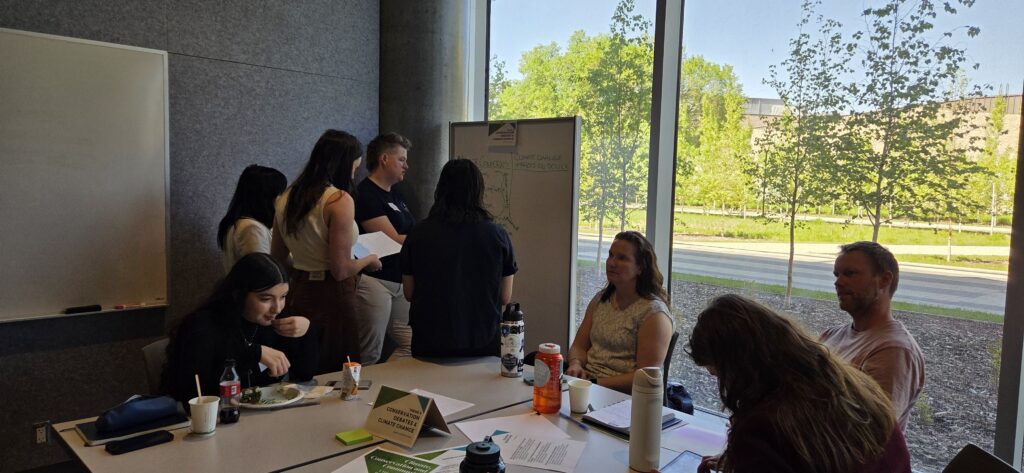
The rountable discussions were intense and engaging. The participants were given a question to start with and discuss their views on the particular quesiton. This was followed by asking every group to come up with possible solutions to the problems they try to address. Four themes were identified for the rountables – Theme A: Conservation Debates & Climate Change, Theme B: Just Transitions in a Changing World, Theme C: Market-Driven Mechanisms and Theme D: Health Equity and Social Justice. The participants only chose the first three themes. Further guiding questions were povided for each theme for the group to discuss. The groups were asked to identify the key takeaways from their discussion along with one or two overarching issues or problems for the next round. In the second round, all the groups were given three guiding questions across all the themes for further deliberation. These were (1) Risk Mitigation and Adaptive Strategies (How can we mitigate risks and develop adaptive strategies to address the identified social-ecological-political challenges?) , (2) Policy Priorities and Transformative Actions (What should be the key policy priorities moving forward? Identify one or two policy recommendations and action items) and (3) Building Meaningful Relationships (How can governments, businesses, academia, civil society, and Indigenous and local communities collaborate effectively to address today’s complex sustainability challenges?). The three questions required for every group to do a through analysis of all that was discussed and come up with potemtial solutions. They were asked to list them down on a whiteboard for discussion later.
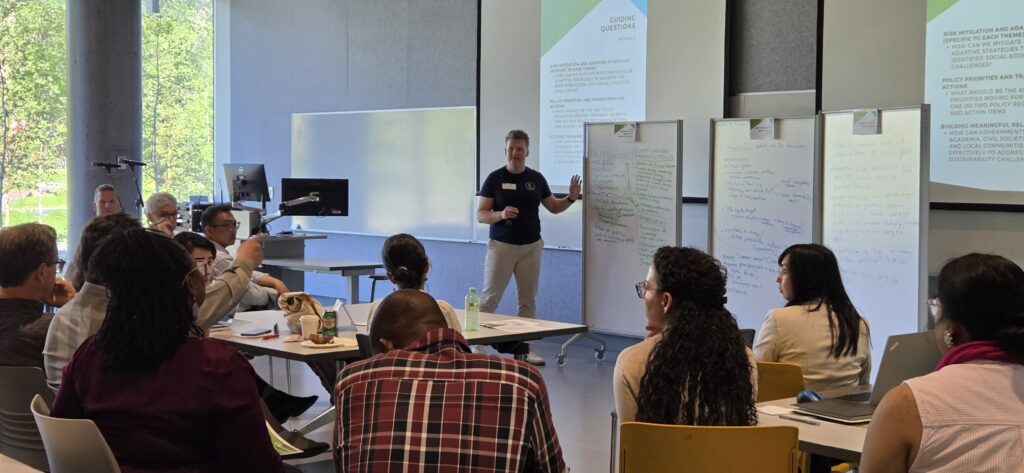
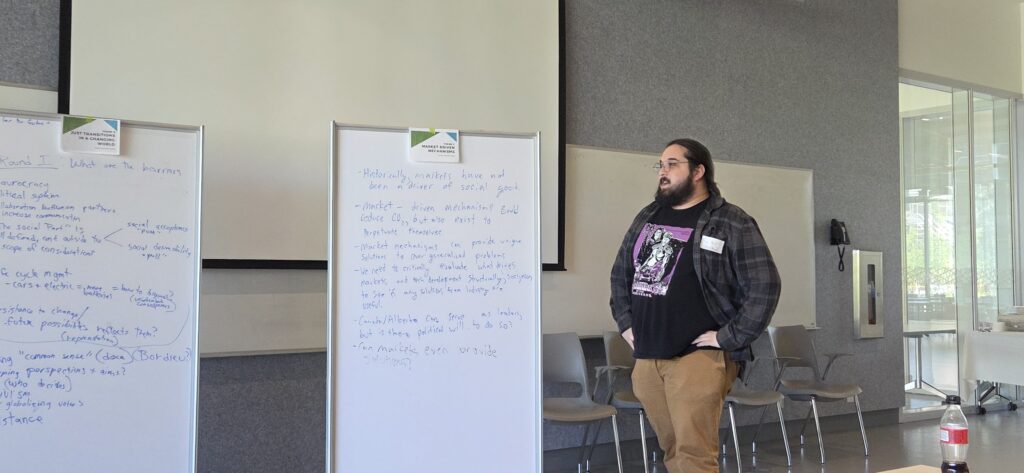
The last session was where all the groups were combined to share and discuss the outcomes of the day-long deliberations. A volunteer from each group was invited to share their perspectives and solutions opening up the floor for further questioning and discussion. All the groups made some valid arguments proposing an equitable and just future. TPE plans to collate all the inputs and combine them in the form of an event proceedings to be presented at the POLLEN conference titled ‘Diverse Origins, Multiple Futures: The Stories of Political Ecology’ in June 2026 at Barcelona, Spain. TPE looks forward to keep the engagement going and build membership both within and outside university, and academia.
The event was funded and supported by the Calgary Institute of Humanities, GSA Quality Money and the Faculty of Arts Indigenous Engagement Grant. The event was catered by McEwan Catering and the Sustainibility Hub provided much needed logistical support. We thank them for their kind gestures. We also thank the participants for attending this event and making it a template for transdisciplinary dialogues going forward. Stay tuned for more updates from TPE.


